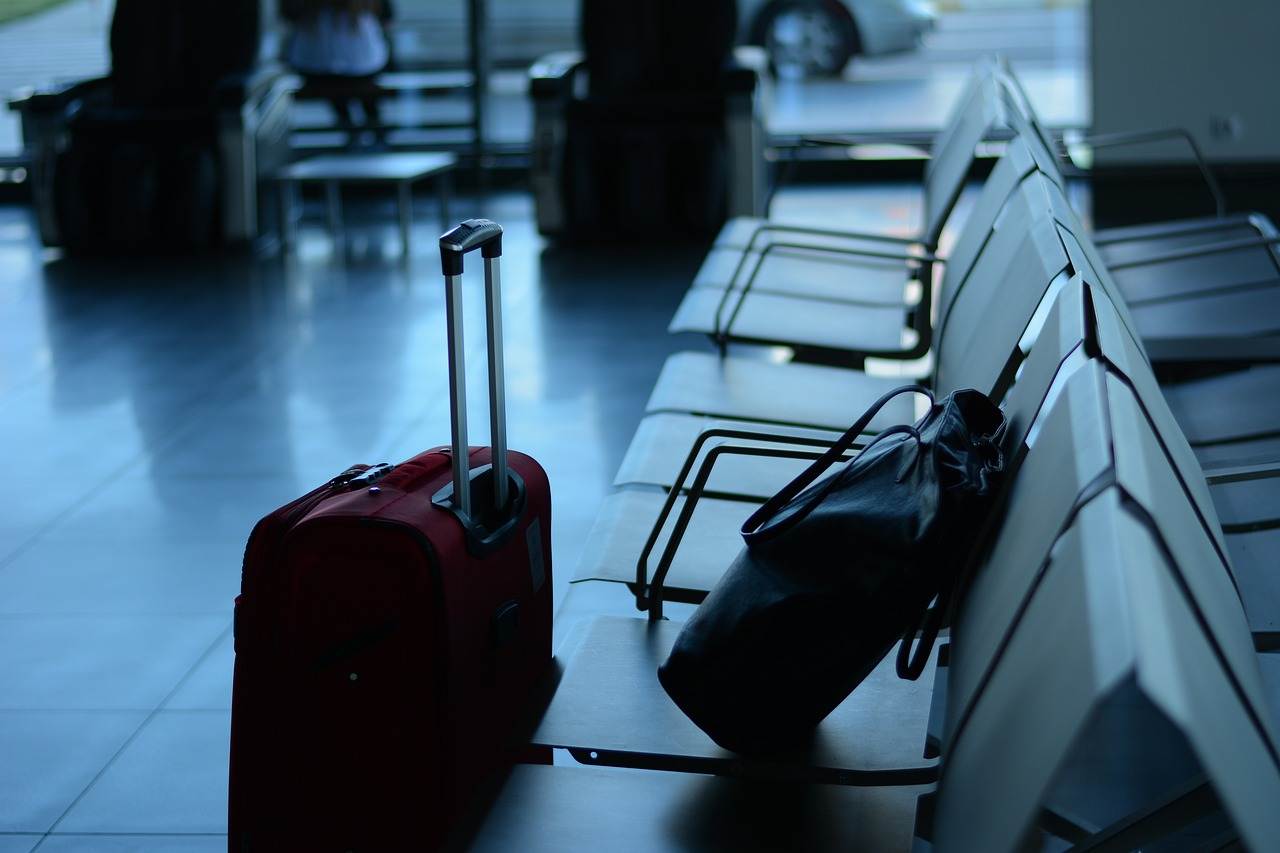Ease those pre-departure jitters with our comprehensive guide to international travel for first-time explorers. Whether you’re a seasoned traveler in your home country or a complete novice to global adventures, embarking on your first trip abroad can be a mix of excitement and nervousness. Our extensive experience in globetrotting has taught us valuable lessons, and we’re here to share 10 essential tips to help you navigate international travel like a seasoned pro.
Traveling to a completely new destination may seem intimidating initially, but with these straightforward tips, you can ensure a smooth and enjoyable journey. From preparations before departure to on-the-road insights, these guidelines are designed to make your international travel experience more seamless and less daunting.
1. Prepare your travel documents
According to Andrew Adams of Vluchten Volgen, A crucial step to prevent unnecessary stress is to proactively apply for your passport well in advance. It’s essential to recognize that a 10-year passport validity can sometimes lead to complacency, as people may forget about the need for renewal.
PASSPORT
Keep in mind that many countries require at least 6 months of validity on your passport for entry, and insufficient free pages may result in visa denials. As a general rule, make sure your passport is valid before booking your flight, as the application process and receipt of your passport can potentially cause delays if not done in advance.
VISA
When it comes to visas, it’s imperative to check beforehand whether your destination requires one. A visa is a crucial document granted by the destination country for entry, and arriving without the necessary visa may result in rejection, particularly if you can’t apply for one upon arrival.
While US and UK passport holders enjoy visa-free or on-arrival access to many countries, regulations vary, emphasizing the need for thorough research on entry requirements for your specific destination.
2. Research your destination
According to Sean Philips of FlightRadar Online, Devoting ample time to researching your destination is crucial for optimizing your travel experience. While the spontaneity of travel can be appealing, practicality often prevails when you anticipate the nuances of your destination by delving into essential tips for first-time international travelers.
Beyond language and cultural differences, it’s essential to be aware of varying laws. For instance, chewing gum is prohibited in Singapore, feeding pigeons is not allowed in Venice, and riding a cow while intoxicated is against the law in Scotland. These unfamiliar laws may seem peculiar, but understanding them beforehand can prevent potential issues during your travels. Being well-informed about your destination’s unique aspects ensures a smoother and more enjoyable experience abroad.
3. Address money matters
Prior to embarking on your journey to a distant locale, it’s crucial to inform your bank about your travel plans. Notifying your bank in advance helps prevent any suspicion of fraud when your card is used in unexpected locations, ensuring seamless transactions while abroad.
Consider the accessibility of ATMs in your chosen destination, as some countries predominantly operate on cash economies and may lack card readers at various establishments. In such cases, it’s advisable to carry sufficient cash to cover your daily expenses. To enhance security, some travelers opt to store larger sums of money in a money belt during their explorations. Addressing money matters beforehand ensures a smoother financial experience during your travels.
4. Compare transportation & accommodation options
According to Dan Eastman of Ship Tracking, Given the likelihood of being on the move daily, it’s essential to thoroughly research the most efficient means of travel for your trip.
TRANSPORTATION
Utilize resources like Rio2Rome and 12Go to explore various route options and determine the quickest and most cost-effective mode of transportation, whether it be by bus, train, or plane. Buses and subway systems are often the most economical and environmentally friendly options, providing opportunities to immerse yourself in the surroundings and engage with locals. Alternatively, consider using rideshare apps like Uber, Cabify, Grab, or Bolt for convenient door-to-door service with vetted and licensed drivers at fair prices.
ACCOMMODATION
While hotels remain a viable choice, hostels, guesthouses, and Airbnb can offer more affordable and immersive experiences, fostering connections with fellow travelers. Boutique hostels, in particular, may provide amenities comparable to or even surpassing those of budget hotels. For extended stays in one location, explore places offering monthly discounts. Platforms like Hostelz.com not only compare sites such as Hostelworld, Booking, and Gomio but also enable users to book directly through the site at the lowest prices available. Evaluating transportation and accommodation options ensures a well-informed and cost-effective travel experience.
5. Book everything in advance
If your travel itinerary is solidified, the optimal time to book your trip is when you have both the financial means and the commitment to embark on your adventure. While the spontaneity of deciding where to stay last minute may seem appealing, be aware that accommodations may be scarce or unusually expensive upon arrival at your destination.
Relying on last-minute decisions can lead to scrambling for accommodation, resulting in higher costs and increased stress in an unfamiliar place. Avoid these pitfalls by booking in advance, ensuring a seamless and worry-free travel experience. This practice also holds true for transport tickets, as securing them beforehand often yields the best deals. The peace of mind that comes with a meticulously planned itinerary allows you to fully immerse yourself in the enjoyment of your trip, minimizing stress about the details.
6. Avoid travel fatigue
As you embark on planning your initial international trip, the excitement may lead you to consider an ambitious itinerary covering numerous cities and regions. However, it’s essential to resist the urge to overextend yourself and, instead, opt for a more measured approach.
TIPS TO OVERCOME TRAVEL FATIGUE
- Allow time for Jet lag recovery: Long-haul flights can be challenging, especially when adjusting to a new timezone. Jet lag disrupts your circadian rhythm, requiring sufficient time for recovery and rest before moving on to your next destination.
- Prepare for travel and motion sickness: Whether traveling by plane, car, or boat, motion sickness is a possibility. Pack travel sickness medication and allocate ample time for rest to overcome any discomfort.
- Schedule adequate time for each destination: Prioritize quality over quantity in your itinerary. Thoroughly exploring fewer locations at a relaxed pace proves more rewarding than hastily skimming the surface of an entire country. Many travelers, in their eagerness, attempt to include entire countries in their plans, only to realize upon reflection that a significant portion of their time was spent in transit. Taking a measured and thoughtful approach ensures a more enjoyable and fulfilling travel experience.
7. Prioritize your health & safety
According to Ivan Wainwright of RDW Kenteken, While it’s essential not to dwell on potential mishaps during your trip, staying mindful of your surroundings and taking precautions for your safety contributes significantly to a positive and secure travel experience.
SAFETY TIPS FOR INTERNATIONAL TRAVEL
- Guard against pickpockets and petty theft: Utilize a crossbody bag or fanny pack to deter pickpockets and securely store your valuables, avoiding keeping them in easily accessible pockets. For added security, consider wearing money belts beneath your clothing or opting for theft-proof wallets.
- Stay connected: Share your itinerary, including accommodation details, with friends and family before departure. If you’re from the US, consider registering with the U.S. State Department’s Smart Traveler Enrollment Program (STEP) for additional support during emergencies or unforeseen events.
- Consider travel insurance: Make travel insurance a non-negotiable element of your pre-travel checklist. From emergency evacuations to lost luggage reimbursement, travel insurance offers financial protection in unexpected situations.
- Exercise common sense: Seek advice from locals and accommodation staff regarding safe areas and potential risks. When venturing out at night, try to travel with a companion, and exercise moderation when consuming alcohol, especially when alone or without trusted company. If using apps to meet new people, always arrange to meet in public places, and trust your instincts if a person or situation raises concerns. Prioritizing your health and safety enhances your overall travel experience.
8. Pack appropriately
Effective packing plays a pivotal role in simplifying your travel experience, as bringing too much, too little, or having a disorganized suitcase can impact your trip negatively.
Consider the following tips for efficient packing:
- Utilize packing cubes: Never underestimate the benefits of packing cubes in enhancing your travels. These organizers aid in maintaining organization, optimizing space, and keeping your clothes tidy. Affordable and practical, packing cubes contribute to a more structured and stress-free travel experience.
- Travel light: While ensuring you have attire suitable for various weather conditions, refrain from overpacking. Heavy luggage can make navigation challenging, especially in places without elevators. To address concerns about running out of clean clothes, consider using a laundry service or indulging in local memorabilia as wearable souvenirs.
- Secure your belongings: Ensuring the safety of your possessions is paramount. Use locks on your rucksack or suitcase to deter theft, and carry essential items like electronics and jewelry in your carry-on bag. When at your accommodation, consider using room safes for added security. Hostels often provide lockers, but it’s advisable to bring your own lock for added peace of mind. Thoughtful packing practices contribute to a more organized and secure travel experience.
9. Read up on airport travel tips
Pre-departure and airport-related concerns are commonplace for both novice and seasoned travelers alike. The expansive terminals, numerous departure boards, and the bustling atmosphere can evoke unease and fluster, especially during an international flight for first-time flyers.
However, maneuvering through the airport is a manageable process, particularly when approached step by step. Identify your departure terminal, complete the check-in process, navigate security, and then relax with a pre-departure coffee. Voilà! Understanding airport dynamics in this way transforms the experience into a more straightforward and less daunting endeavor.
10. Consider connectivity
While travel offers eye-opening experiences, it can occasionally lead to feelings of loneliness, especially for those prone to homesickness. Fortunately, staying in touch with friends and family is entirely possible while abroad, whether through daily calls or by sharing snapshots of your adventures.
Consider the following aspects when contemplating connectivity:
- International roaming vs. local SIM: Decide whether utilizing international roaming within your current plan or acquiring a local SIM card while abroad makes more sense. Keep in mind that your phone must be unlocked to use a prepaid SIM.
- Availability of public wifi at the destination: Public wifi serves as a valuable resource for conserving data. While major cities typically have widespread wifi coverage, more remote destinations may offer limited access.
- Need for a VPN: In some overseas countries like China, Turkey, and the UAE, social media and communication apps such as Facebook, Instagram, and WhatsApp might be blocked. Investigate whether a VPN is necessary to access these platforms during your travels. Prioritizing connectivity ensures you can maintain meaningful connections regardless of your location.








Leave a Reply